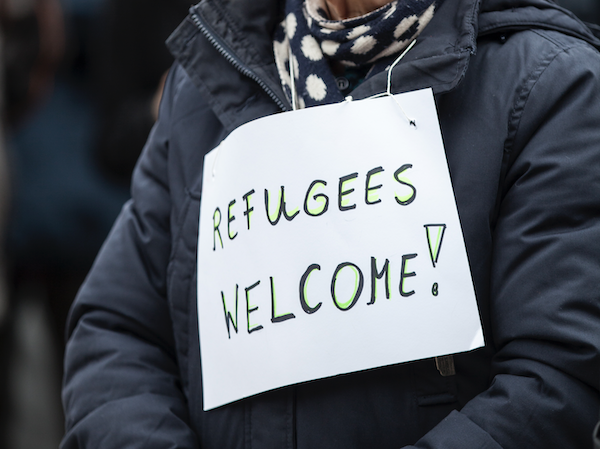Ministers back “strictest ever” asylum plan despite criticism
Robin Pascoe
The Dutch cabinet has agreed to press ahead with controversial legislation aimed at reducing the number of asylum seekers coming to the Netherlands, despite widespread criticism of the plans.
The Council of State, which assesses all draft legislation, said earlier this year that asylum minister Marjolein Faber’s plans for the “strictest asylum regime ever” would trigger a wave of legal challenges, placing further strain on an overburdened legal system.
In a highly critical assessment, the constitutional advisory body said it had “serious concerns” about proposals such as abolishing permanent residency for refugees and creating a two-tier asylum system. Nor is there any evidence that the measures will actually work, the council said.
The measures are designed to control migration by deterring asylum seekers from coming to the Netherlands and making it easier to send refugees back when the situation in their countries of origin improves.
Following the criticism, both Faber and PVV leader Geert Wilders said they would not accept any changes to the draft legislation. And on Friday, ministers agreed to press ahead, adding only extra “clarification” and making one small technical change.
The first piece of legislation scraps permanent residency permits for refugees, reduces the primary refugee permit from five to three years, stops adult children from joining their parents in the Netherlands, and makes it easier to declare people “undesirable aliens.”
It will also stop refugees from bringing in their families until they have lived in the country for two years and have a home and income.
Two-tier system
The second bill will allow officials to differentiate between people who fled their home country because of their ethnicity, sexual orientation, or religion, and those who fled from war or violence, including natural disasters.
Cabinet
Despite the council’s objections, all four coalition parties have said the legislation can go to the lower house of parliament. This includes the NSC, which had made good governance a key part of its election campaign but has since sided with the far right on numerous occasions.
While the proposals are likely to get majority support in the lower house, the upper house, or senate, will be a more difficult prospect. The ruling coalition needs to find other parties to secure majority support.
Earlier, it emerged that the cabinet has agreed to increase the immigration service budget by €56 million in an effort to head off any extra delays caused by the new measures.
As yet, no date has been set for the legislation to be sent to the lower house.
Syria
Meanwhile, Faber came under fire earlier this week for circulating a message on social media suggesting Syrian nationals celebrate the end of Ramadan in their home country.
“Celebrate the sugar feast (the Dutch name for Eid al-Fitr) at home,” the minister wrote. “Our information campaign about a voluntary return to Syria has started”.
The message included a copy of an information leaflet about the Dutch programme, which includes a free ticket and €900 in return for giving up any claim to asylum in the Netherlands.
Thank you for donating to DutchNews.nl.
We could not provide the Dutch News service, and keep it free of charge, without the generous support of our readers. Your donations allow us to report on issues you tell us matter, and provide you with a summary of the most important Dutch news each day.
Make a donation